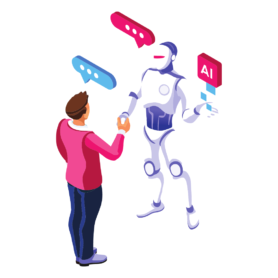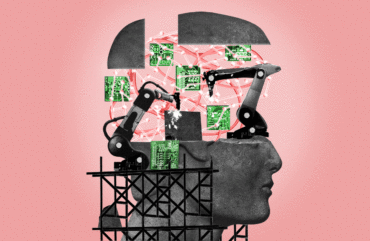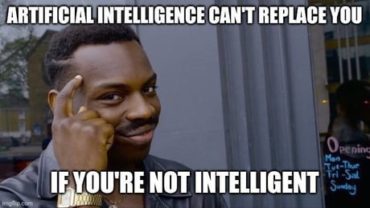Article By:- Raj Ayush
We have often heard people saying,
“If you aren’t going to help yourself, nobody will”.

Well, I don’t know how seriously we take this piece of advice in our lives, but AI for sure has pondered over it and is all set to make itself self-dependent for its data management.
Data, as we all know, is the fuel on which the AI runs. Greater the amount of data that is fed to the system, the smarter it gets and the more accurate and contextual the data becomes the more accurate are the results which we get to see. Now the catch here is the rate at which the data is generated at present time, it is next to impossible to categorize and store the same efficiently into the databases of these systems manually. With an aim to cut down this process is the upcoming big revolution in the field of Artificial Intelligence.
AI using AI
The Dell’s 2021 Global Data Protection Index stated a fact that a mid-rank enterprise at present tends to manage 10x more data than it did five years back. The stats also showed that the data load which was around 1.45 petabytes back in 2016 has seen a humongous rise to 14.6 petabytes which clearly justifies the above stated fact. Looking around as we see the data being generated right from data center to edge to cloud to every device that has an active internet connection, we can be sure of the fact that this trend would soar to greater heights in near future.

Owing to all these numbers and facts, the urge to exploit its data potential to the best of capacity is very evident, so the question that stands to be answered is not why, but how.
It is quite understood that the nature of data that comes at the raw stage is mostly unstructured. This is one of the most vital spaces where AI proves to be a boon, because clearly such unstructured form of data is of no use to the system. In addition to its capability of shifting through large volumes in search of important pieces of information and bits , AI can also adapt itself to changes in the environment variables and varying data flows. For example, AI can automate numerous key processes such as matching, annotating, joining and tagging, following which it can keep a check at the data quality and help identify trends and patterns thereby helping to improve integrity before scanning volumes.
One industry that has boomed the most in the past couple of years is surely the Health and Care Industry, where extensive medical researches having been paving way to a large chunk of data and the data being generated in his case is so vast and diversified and at the same time cannot be overlooked, so an efficient and smart system of data management is the need of the hour.
Since these results hold analysis of so many important researches, optimization of data collection and its management is one thing that has to be taken care of, and most of it is very skillfully being taken down by machine learning in particular. As a result of which we are able to get greater insights into the results of such research and more efficiently cut down large pieces of scattered information to useful segments.
Revolutionizing the Data
Taking into consideration of what the Industry Experts think about the idea, the take is that still there is a big proportion of the global community that is trying to figure out and get their Master Data Management(MDM) suites up and running and in that case the possibility of them switching over to any other versions of the same stands next to impossible.

Looking at the bigger picture, we see that implementation of more intelligent MDM Boosters would in turn automate most of the basic analysis process and at the same time help integrate workflow and rules enforcement thereby saving a lot of manual labor of the data managers that could then be used for higher-level analysis and interpretation.
Therefore, AI supporting AI for skillful management of data becomes a visionary process that would serve as a turning point in the digital enterprise. Not only this, it would even tend to change the work culture of the data managers/scientists and people working on equivalent posts. Rather than doing the kind of work they are asked to do now, the professionals will be more focused on monitoring the end results that are generated by the AI systems and to improvise the same.
One of the biggest impacts that the trend is going to have is in the field of business with data being referred to as the king of the digital space, abled management of the same would save a lot of time and there is nothing more precious than time in the long run.

